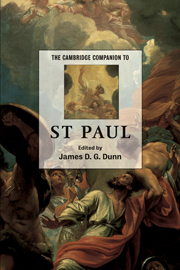1 - Paul’s life
from Part I - Paul’s life and work
Published online by Cambridge University Press: 28 May 2006
Summary
Opinions of Paul have always been divided. He had been a man of conflict before his sudden conversion on the road to Damascus, bitterly opposed to the Jesus movement. He remained a subject of controversy after that event not only among his conservative Jewish countrymen but also within the early church. In modern times generations of scholars have hailed or blamed him as the true founder of Christianity, granting that Jesus himself had not crossed the borders of ancient Judaism. Obviously the apostle of the Gentiles was and is a challenge that leaves little room for indifference. Nevertheless sound scholarship must aim at balanced views that have a chance of convincing a majority of those who are ready and able to dig deeper and listen to the sources rather than to the praise or disdain of modern friends or foes. Positive or negative judgments on Paul are usually based upon some well-known doctrinal statements of his, isolated from the argument of their context and quoted without regard to the circumstances of his life and times. Instead of such more or less arbitrary opinions, to do justice to the person and work of the apostle demands a careful consideration of the character of our sources and an interpretation of his teaching as conditioned by his social and religious background and as part of his ministry of founding and fostering young churches in the Mediterranean world outside Judaea.
- Type
- Chapter
- Information
- The Cambridge Companion to St Paul , pp. 19 - 33Publisher: Cambridge University PressPrint publication year: 2003
- 5
- Cited by

